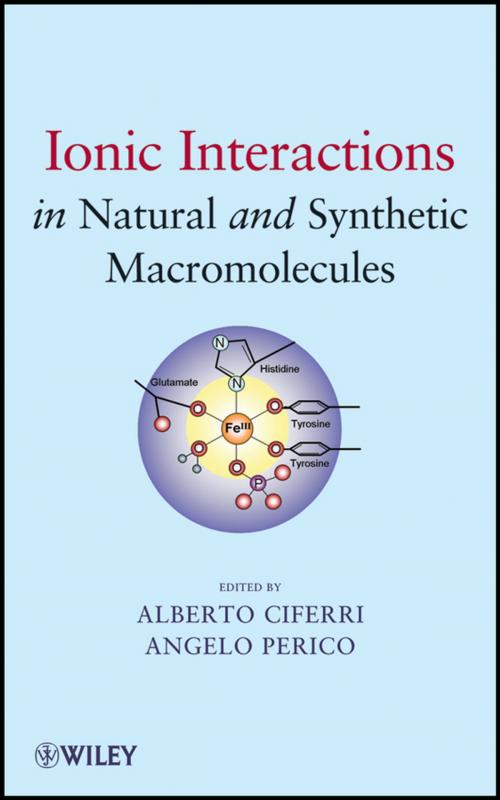Ionic Interactions in Natural and Synthetic Macromolecules
Nonfiction, Science & Nature, Science, Chemistry, Inorganic| Author: | ISBN: | 9781118165843 | |
| Publisher: | Wiley | Publication: | January 4, 2012 |
| Imprint: | Wiley | Language: | English |
| Author: | |
| ISBN: | 9781118165843 |
| Publisher: | Wiley |
| Publication: | January 4, 2012 |
| Imprint: | Wiley |
| Language: | English |
This book is a comprehensive study of the subject of ionic interactions in macromolecules. The first parts of the book review and analyze the conventional treatments of fixed charges (e.g. in polyelectrolytes and polyampholytes), including screening and condensation by mobile ions. The interaction of ions with less polar sites on the macromolecule (e.g. amide bonds), and the origin of the lyotropic effects (focusing on binding versus condensation) will also be extensively addressed.
The book also explores complex micellar organizations involving charged macromolecules (e.g. DNA) and low-molecular-weight ampholytes and strong protein associations. The resulting structures are relevant to a variety of functional biological systems and synthetic analogs. The contribution of electrostatic and hydrophobic interaction to the stability of proteins and other supramolecular structures will also be analyzed. There are chapters on applications such as deionization and cosmetic formulation.
This 21-chapter book is divided into three sections:
- Fundamentals
- Mixed Interactions
- Functions and Applications
This book is a comprehensive study of the subject of ionic interactions in macromolecules. The first parts of the book review and analyze the conventional treatments of fixed charges (e.g. in polyelectrolytes and polyampholytes), including screening and condensation by mobile ions. The interaction of ions with less polar sites on the macromolecule (e.g. amide bonds), and the origin of the lyotropic effects (focusing on binding versus condensation) will also be extensively addressed.
The book also explores complex micellar organizations involving charged macromolecules (e.g. DNA) and low-molecular-weight ampholytes and strong protein associations. The resulting structures are relevant to a variety of functional biological systems and synthetic analogs. The contribution of electrostatic and hydrophobic interaction to the stability of proteins and other supramolecular structures will also be analyzed. There are chapters on applications such as deionization and cosmetic formulation.
This 21-chapter book is divided into three sections:
- Fundamentals
- Mixed Interactions
- Functions and Applications















